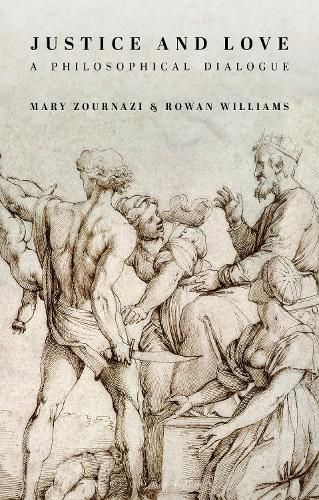Readings Newsletter
Become a Readings Member to make your shopping experience even easier.
Sign in or sign up for free!
You’re not far away from qualifying for FREE standard shipping within Australia
You’ve qualified for FREE standard shipping within Australia
The cart is loading…






How do we see and act justly in the world? In what ways can we ethically respond to social and economic crisis? How do we address the desperation that exists in the new forms of violence and atrocity? These are all questions at the heart of Justice and Love, a philosophical dialogue on how to imagine and act in a more just world by theologian Rowan Williams and philosopher Mary Zournazi.
Looking at different religious and philosophical traditions, Williams and Zournazi argue for the re-invigoration and enriching of the language of justice and, by situating justice alongside other virtues, they extend our everyday vocabularies on what is just.
Drawing on examples ranging from the Paris Attacks, the Syrian War, and the European Migrant Crisis to Brexit and the US Presidential elections, Williams and Zournazi reflect on justice as a process: a condition of being, a responsiveness to others, rather than a cold distribution of fact. By doing so, they explore the love and patience needed for social healing and the imagination required for new ways of relating and experiencing the world.
$9.00 standard shipping within Australia
FREE standard shipping within Australia for orders over $100.00
Express & International shipping calculated at checkout
How do we see and act justly in the world? In what ways can we ethically respond to social and economic crisis? How do we address the desperation that exists in the new forms of violence and atrocity? These are all questions at the heart of Justice and Love, a philosophical dialogue on how to imagine and act in a more just world by theologian Rowan Williams and philosopher Mary Zournazi.
Looking at different religious and philosophical traditions, Williams and Zournazi argue for the re-invigoration and enriching of the language of justice and, by situating justice alongside other virtues, they extend our everyday vocabularies on what is just.
Drawing on examples ranging from the Paris Attacks, the Syrian War, and the European Migrant Crisis to Brexit and the US Presidential elections, Williams and Zournazi reflect on justice as a process: a condition of being, a responsiveness to others, rather than a cold distribution of fact. By doing so, they explore the love and patience needed for social healing and the imagination required for new ways of relating and experiencing the world.